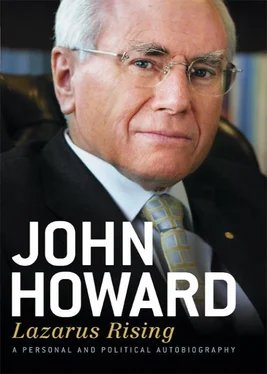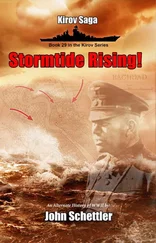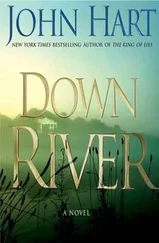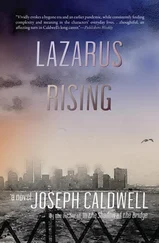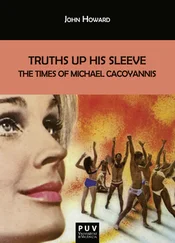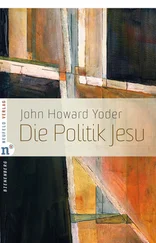It was an emotional issue for them, especially for Peter, whose family had been directly touched by the Holocaust. After the lecture, the four of us stood on the steps of the hall, locked in furious argument about what Stone had said. Despite his understandable sympathy with the Jewish cause, Stone had applied his customary juridical objectivity to the issue. I fully agreed with what Israel had done. Eichmann, who played a key role in implementing the Nazis’ ‘Final Solution’ for the extermination of the Jewish people, decided upon in 1942, was convicted and hanged in Israel.
A relatively young Bill Deane tutored me in the subject of succession (probate and death duties). He became a judge of the High Court, and was appointed Governor-General, on the recommendation of Paul Keating, taking up that position just before the change of government in 1996. Deane’s first major duty as Governor-General was to swear me in as Prime Minister, on 11 March 1996.
I had graduated from the Sydney University Law School in early 1961, and in June 1962, having completed my articles, was admitted to practise as a solicitor of the Supreme Court of New South Wales. My articles were served with one of the most colourful and remarkable people I have ever known, Myer Rosenblum. As a youngster Myer had emigrated from South Africa with his family, who settled in Marrickville, not far from my father’s garage. Myer’s father became a regular customer at the garage. When Myer qualified as a solicitor and commenced his own practice, my father returned the compliment and engaged him as his solicitor.
Myer Rosenblum had very diverse tastes and talents. He had represented Australia at rugby union, having played breakaway (flanker) for the 1928 Waratahs; was a hurdler at the 1932 NSW Championships; represented Australia as a hammer thrower in the 1938 Empire Games in Sydney; and held the NSW hammer throw record for something like 20 years. A cultivated person, he played the bassoon in the Sydney Conservatorium Orchestra, spoke fluent German and Yiddish, and began to teach himself Italian when in his 50s.
My becoming articled to Myer Rosenblum followed the making of close friendships with a number of Jewish students at law school. One of them, Peter Strasser, remains a very close friend. Thus began, for me, a long association with members of the Jewish community in Australia. Those early friendships, and the experience I gained from working with much of the Jewish clientele which Myer’s firm attracted, created within me a deep respect, and in many ways affection, for the Jewish people.
As Prime Minister, I saw to it that Australia remained a staunch ally and friend of Israel. This was more than just a projection onto the international stage of my home-grown regard for Jewish people. I admired the remarkable struggle of the people of Israel against hostile Arab neighbours, and the democratic character of that country.
In 2006, Australia and the United States, almost alone amongst Western democracies, backed Israel in opposing a UN resolution condemning the latter for constructing a wall to protect its people against terrorists. I was staggered at the level of international hostility towards Israel over her action, which seemed to me to be a clear-cut case of self-defence.
Although I had joined the Earlwood branch of the Young Liberals when I was 18, participated in general campaigning for the 1958 federal election in the local area where I lived, and was briefly a member of the Sydney University Liberal Club, it was not until I had left university that I became really active in politics.
Largely due to my hearing problem, I found university quite taxing. I was reluctant to get too heavily involved in other activities until I knew that I would qualify as a lawyer. As a result, my experience was very different from that of many of my colleagues, who cut their teeth on university politics.
Once out of university, I hurled myself into Liberal Party activities, both at a local and NSW level. I took over the presidency of the local Young Liberal branch and became very active in the Youth Council, which comprised delegates from the various Young Liberal branches in the Sydney metropolitan area.
It was easy for cynics to dismiss Young Liberal activities as being entirely social and lacking in political gravitas. That was a superficial judgement. Sure there was plenty of social activity — and of course, why not? — but to those who were so inclined there were ample opportunities for political involvement. The Youth Council was a great forum for debate on contemporary political issues, and the physical participation of young people in local campaigns was especially welcome.
In those days members of parliament (MPs) did not have postal allowances; we were years away from direct-mail campaigns. Hand delivery of pamphlets to individual letterboxes, usually at night, was the staple way of getting the local candidate’s message across.
My first experience of serious organisational politics was my election, in 1962, as the Young Liberal representative on the state executive of the NSW division of the Liberal Party. This body was the power centre of the party in NSW and included the leader and deputy leader of the state parliamentary party as well as the most senior member from New South Wales of the Menzies Government. I was now involved in genuine politics.
It was then that I first really got to know John Carrick, the general secretary of the party in New South Wales, a person who would influence me enormously over the years. He was to become my political mentor. I learned more about politics from John than from any other person I have known.
He had become the party’s general secretary, the chief executive officer, in 1948 at the age of 29. During World War II, when a member of the Sparrow Force in Timor, he was captured by the Japanese and as a prisoner of war spent time working on the infamous Burma–Thailand railway. John would hold the position of general secretary for 23 years, until his election to the Senate in 1971. He became a senior minister in the Fraser Government, and served as Leader of the Government in the Senate, until that government was defeated in 1983.
Possessed of abundant energy, as well as immense organisational skills, John always realised that politics was a battle of ideas — a philosophical contest — and not merely a public relations competition. He drew many people to his orbit through the force of his intellect and his indefatigable commitment to the political cause of the Liberal Party. To him, one of the roles of a general secretary was to act as a constant talent scout for people who might contribute as members of parliament, irrespective of whether they were members of the party.
He formed a close relationship with Menzies, who much admired his tactical and strategic abilities. To my mind, one of John Carrick’s immense contributions to the continuing political success of the Liberal Party was the role he played along with others in persuading the Prime Minister to embrace a policy of direct government assistance to independent (principally Catholic) schools. This change was an important factor in the Liberal victory, federally, in 1963. Thus began the most enduring demographic shift in Australian politics in the past generation, namely the change in allegiance of a whole swag of middle-class Catholic voters, who hitherto had remained loyal to the Labor Party for none other than tribal reasons.
Until the 1960s the ALP was the party of choice for the majority of Australian Catholics. Theology played no part in this; it was driven by socioeconomic factors, with Irish Catholics being predominantly of a working-class background. The sectarianism of earlier generations served to reinforce this alignment. Although the warming of Catholics towards the Liberal Party had begun in earnest with Menzies’ state aid gesture in 1963, the first Fraser cabinet of 1975 still included only one Catholic, Phillip Lynch. Over the coming years the dam would really burst on this old divide. One-half of the final Howard cabinet in 2007 were Catholics. Once again this had nothing to do with religion, it being the inevitable consequence of a socioeconomic realignment.
Читать дальше
